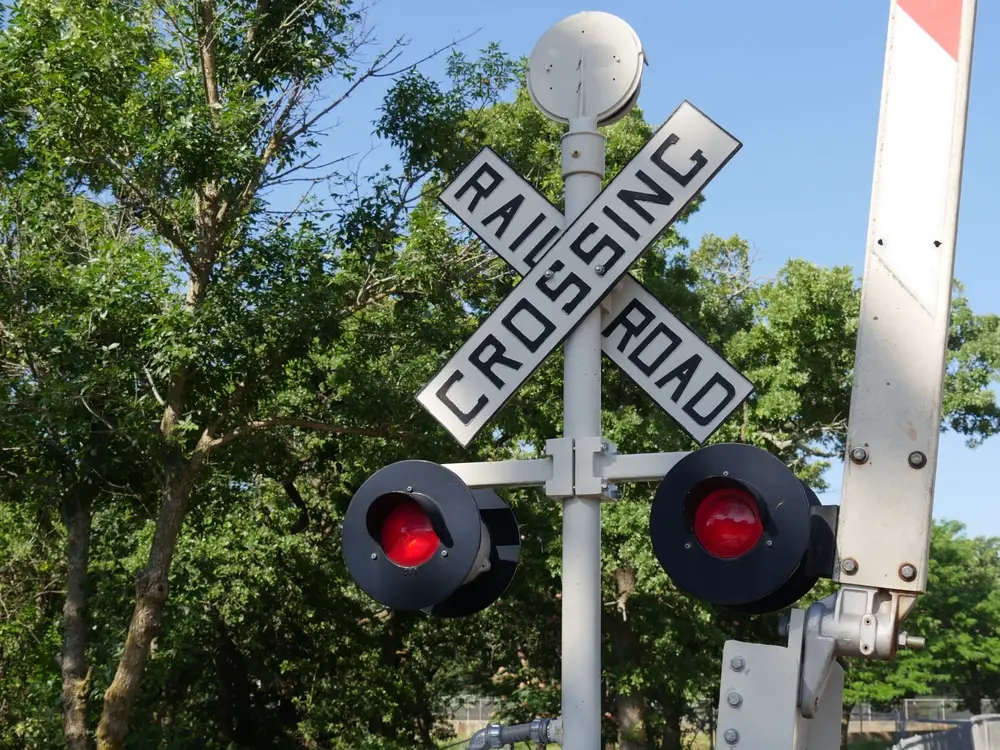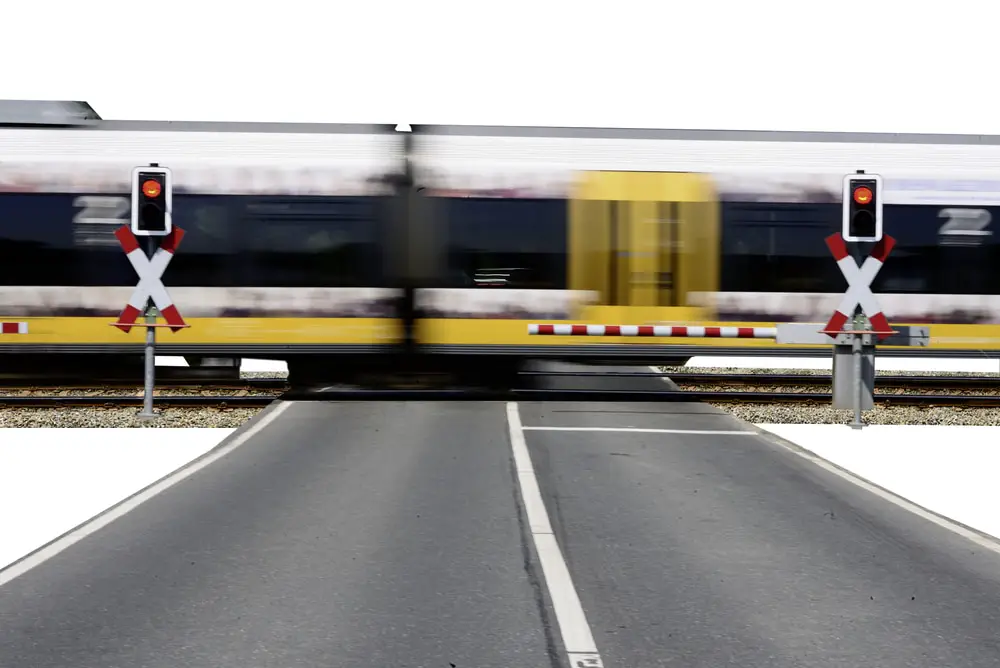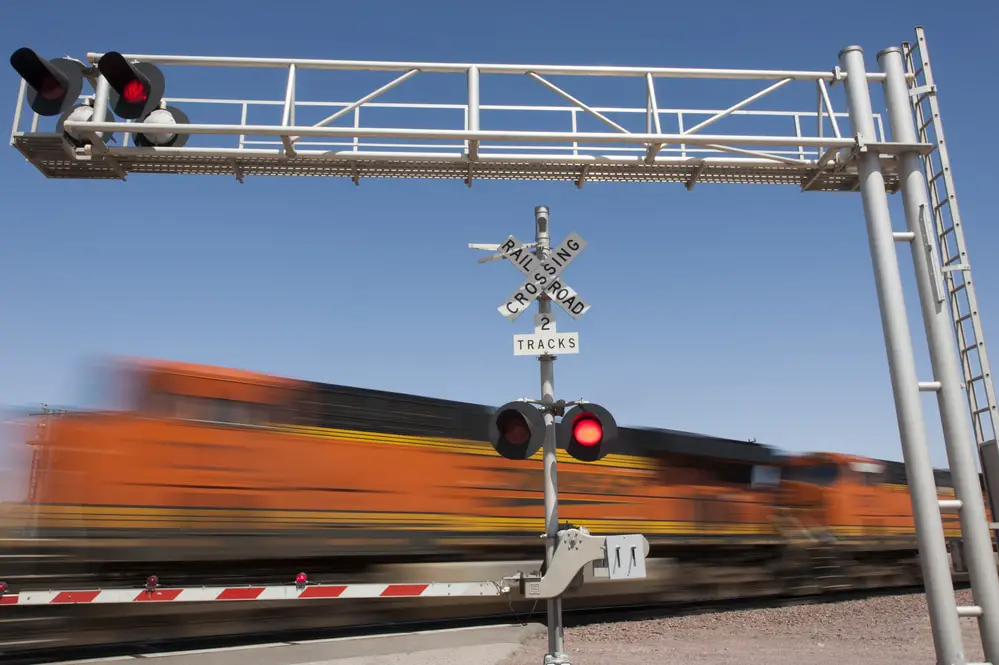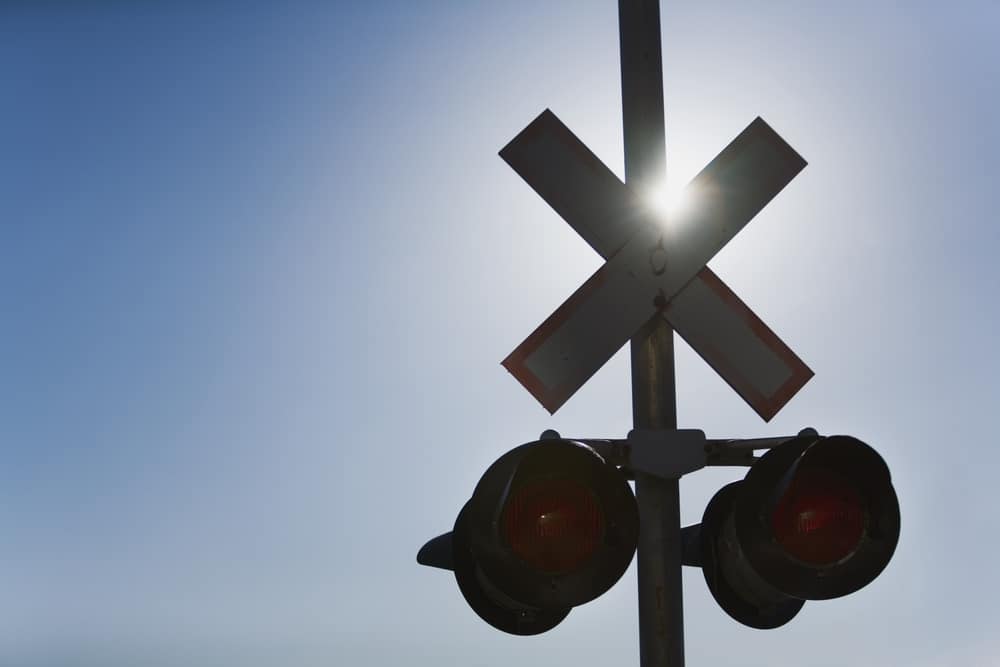If you’re wondering how long can trains block roads, the general rule is not longer than 20 minutes. Different states have varying statutes on trains blocking crossings from a mere 5 minutes to as long as 20 minutes. Let’s learn more.

Trains blocking crossings have been an issue for decades in rural and urban communities.
Sometimes, these blockages can last for hours or even days which causes delays in traffic and business transactions.
In some cases, this can also result in delays in emergency situations.
The FRA, government, and their partners collaborate to help reduce these road blockages. Also, they implement plans to try and reduce the negative impact of rail crossings.
Read on to learn the different statutes for each state of America.
Just to clarify.
Is There A Federal Law On Trains Blocking Roads?
No federal regulations or laws concerning trains blocking roads and crossings exist. There are no mentions in any federal grounds of a limit on how long a train can block a road.
How Long Can a Train Block a Road (Per State)?
Different states have varying regulations and statutes on how long a train can block a road or crossing. Additionally, some states do not have regulations at all.
If you’re wondering about the regulations in your area, here’s a quick list of everything you need to know about train limitations.

13 States prohibit a train from blocking a road for more than 5 minutes
Thirteen states prohibit a train from blocking the road, crossing, public highway, or street for more than five minutes.
These states have statutes of their own on this topic and have corresponding punishments and violations.
The states are the following:
- Alabama
- Alaska
- Colorado
- Kentucky
- Michigan
- Mississippi
- North Dakota
- Ohio
- Pennsylvania
- South Carolina
- Tennessee
- Utah
- Vermont
- Virginia
15 States prohibit a train from blocking a road for more than 10 minutes
Fifteen states in the U.S. prohibit a train from blocking a crossing, road, street, or public highway for more than ten minutes.
The states are the following:
- Arkansas
- California
- Delaware
- Illinois
- Indiana
- Iowa
- Kansas
- Massachusetts
- Minnesota
- Nebraska
- Oklahoma
- Texas
- Washington
- West Virginia
- Wisconsin

3 States prohibit a train from blocking a road for more than 15 minutes
Three states prohibit a train from blocking a street, public highway, crossing, or road for more than fifteen minutes.
These states are Arizona, Idaho, and Montana.
3 States prohibit a train from blocking a road for more than 20 minutes
Three states prohibit a train from blocking a road, crossing, street, or public highway for more than twenty minutes.
These are Louisiana, New Mexico, and South Dakota.
14 States that don’t have statutes concerning trains blocking roads
Fourteen US states have regulations covering trains blocking highways, streets, crossings, or roads. However, some states follow the general rule of thumb of 20 minutes. The states are the following:
- Connecticut
- Georgia
- Hawaii
- Maine
- Maryland
- Missouri
- Nevada
- New Hampshire
- New Jersey
- North Carolina
- New York
- Oregon
- Rhode Island
- Wyoming

Possible Violations of Blocking a Crossing
Since there is no federal law to control trains from blocking a road, several states have issued statutes to help prevent these incidents.
These statutes differ from the time limit of the train’s blockage, varying from five minutes to as long as 20 minutes.
Additionally, any violation of these limits is punishable with a fine from $10 to $2000.
However, it’s essential to take note that any railroad employee, engineer, or officer is not liable for these punishments.
Lastly, it is the railroad company that will be charged with all the violations.
Why Do Trains Stop on the Tracks?
There are various reasons why trains stop in the middle of the tracks. The most common reason trains stop in the middle of a crossing is mechanical issues and switch adjustment.
If the train is not moving for minutes and hours, chances are the train has experienced mechanical or operational issues.
Additionally, some issues that may occur are wear and tear on tracks/trains or extreme weather conditions.
If the train did have a mechanical issue, a technician or engineer would first try to fix these concerns.
If the crew is unable to resolve the issue, the railroad company will have to get another locomotive or engine to try and move the train.
Another common reason why a train stops on the tracks and blocks the road is switch adjustments.
Switch adjustments are made to change the direction of the tracks. To do this, the train must pass the switch first, and a switchman or carman hops off the train to physically switch the tracks.
Once this is done, the train must back up over the switch to activate the adjustment. Additionally, it’s essential to note that this process can take a long time.
Imagine a freight train hauling hundreds of fully packed cars trying to move forward and backward again.
Other reasons a train may stop are when there’s a sign of danger, unnecessary track blockage, track infrastructure issues, and more.

How to Report a Train Blocking a Road?
The Federal Motor Carrier Safety Administration (FMCSA) has all the numbers you need to call whenever you want to report a train blocking a road.
You can also report through these numbers if any object or animal is stuck on the tracks or if you notice a signal malfunction.
Additionally, provide the name of the highway or road that crosses the track, your location, and the crossing number (if provided).
Lastly, tell the operator the exact reason you’re calling (i.e., a vehicle, animal, or person is on the rail track).
- Amtrak – 1-800-331-0008
- BNSF Railway – 1-800-832-5452
- CSX – 1-800-232-0144
- Canadian National – 1-800-465-9239
- Canadian Pacific – 1-800-716-9132
- Kansas City Southern – 1-800-892-6295
- Norfolk Southern – 1-800-453-2530
- Union Pacific – 1-888-877-7267
Also, if you’re having difficulty looking for the railroad emergency numbers, call 911 or your local police for immediate assistance.
How is the FRA Helping the Community?
The Federal Railroad Association (FRA) offers Railroad Crossing Elimination Grant Program which provides projects in different communities.
These programs help fund improvement projects for pathway-rail and highway-rail grade crossings.
Additionally, the eligible projects that can be availed are the following:
- Track relocation
- Grade closure or separation
- Improvement of track relocation, closure, and separation project
- Installation or improvement of signal signs, protective devices, and more
- Environmental planning, review, and design of other project types
Interested applicants can visit their page.

Frequently Asked Questions
Is There a Limit on How Long a Train Can Be?
The Federal Railroad Association (FRA), which oversees freight railroads, doesn’t have any regulatory requirements on how long a train can be. Also, there are no federal laws that limit any train’s length.
What is the Longest Train Ever Recorded?
The latest longest train ever recorded is the BHP Iron Ore in Western Australia, which was first launched on June 21, 2011. The train is 4.53 miles (7.29 km) long and carried 682 cars to move around 181 million pounds or 82,000 metric tons of iron ore.
Additionally, they used two single locomotives, and three paired locomotives spread out on the train. Lastly, it traveled 170 miles (273.6 km) which took ten hours and four minutes to go from Yandi mine to Port Hedland in Western Australia.
What is the Shortest Train in the World?
The shortest train recorded is The Angel’s Flight in Bunker Hill, Los Angeles, USA. It only travels 298 feet from Hill Street to Grand Avenue. It initially operated from 1901 to 1969.
Additionally, you can now experience this ride going up to a 33% gradient for just $1 per ride.
How Long is the Average Train?
In recent years, the rail industry has increased the number of cars in freight trains. Since the data on train lengths are not publicly available, the Government Accountability Office indicated that the average length of trains has increased by 25%.
In 2008, freight trains only had 1.2 miles. However, in 2017, the average length was about 1.4 miles already.
How Long Can Trains Block Roads? – Conclusion
There are no federal laws limiting trains from blocking a crossing, road, street, or public highway.
Certain states have regulations that punish trains from blocking a road from five to twenty minutes.
Additionally, they have corresponding violations and punishments for railroad companies violating these laws.

